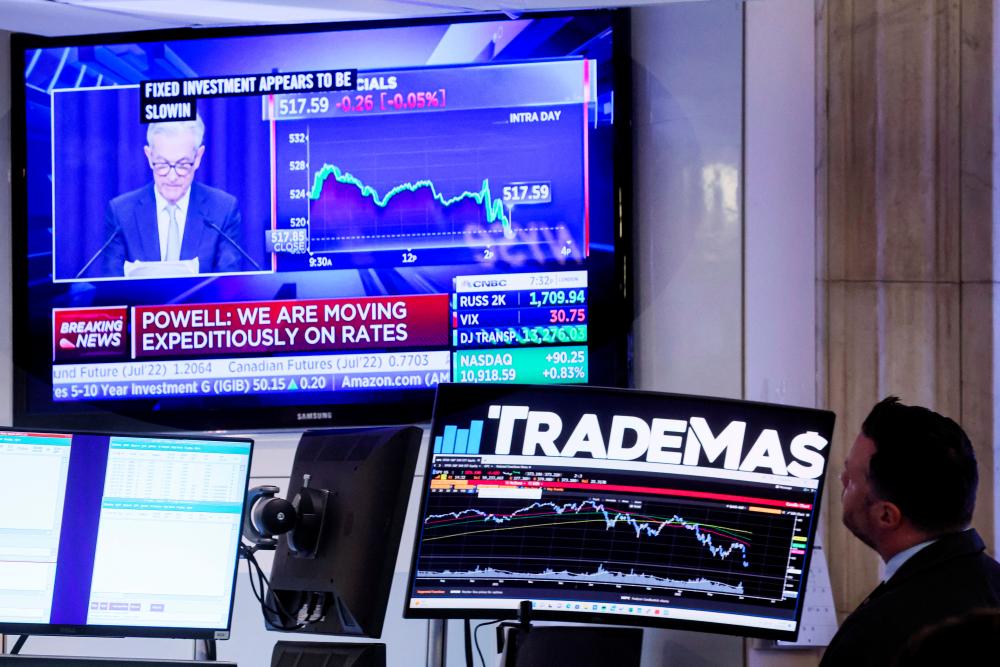NEW YORK: Wall Street stocks rallied yesterday, applauding a large interest rate increase by the US Federal Reserve (Fed) in hopes that inflation can be countered without prompting a recession.
The Dow Jones Industrial Average rose 303.7 points, or 1%, to 30,668.53, the S&P 500 gained 54.51 points, or 1.46%, to 3,789.99 and the Nasdaq Composite added 270.81 points, or 2.5%, to 11,099.16. The S&P snapped a five-session losing streak, its longest since early January.
The US central bank raised the benchmark borrowing rate by 0.75 percentage points, bigger than the telegraphed 0.5-percentage-point increase after economic data in recent days showed inflation strengthening and consumer confidence weakening.
The super-sized move was the first 75-basis-point increase since November 1994.
Fed chair Jerome Powell said the Fed has the “tools” and “resolve” to do what it takes to lower inflation from the highest level in more than 40 years, adding that the central bank could hike the benchmark interest rate by another 0.75 percentage points in July.
Powell emphasised that the Fed was not trying to induce a recession, but that aggressive measures were needed to counter inflation.
Stocks climbed after the Fed decision, strengthening somewhat during the news conference. However, stocks also rallied after the Fed raised interest rates in May, only to weaken substantially in subsequent sessions.
“Once the Fed chairman said that there could be a similar 75 basis point increase at the next meeting, that’s when the market rose,” said Sam Stovall, chief investment strategist at CFRA Research in New York.
“It is sort of a vote of confidence that the Fed is finally awake to the inflation problem and is willing to take a more aggressive stance.”
“The market is getting comfortable with the idea that the Fed is now starting to take the inflation situation very seriously,” said Tom Cahill of Ventura Wealth Management, who nonetheless expressed scepticism that the Fed could achieve a “soft landing”.
Wells Fargo economist Jay Bryson shifted his outlook from an economic soft landing to a “mild recession starting in mid-2023,“ noting signs that inflation is becoming “increasingly entrenched in the economy” and cautioning that higher interest rates will curtail some spending.
“Recession next year is not necessarily assured, and the Fed may still be able to pull off an economic soft landing,” Bryson said. “But prospects of a soft landing are looking increasingly less credible, and we now judge that recession next year is more likely than not.” – AFP, Reuters










